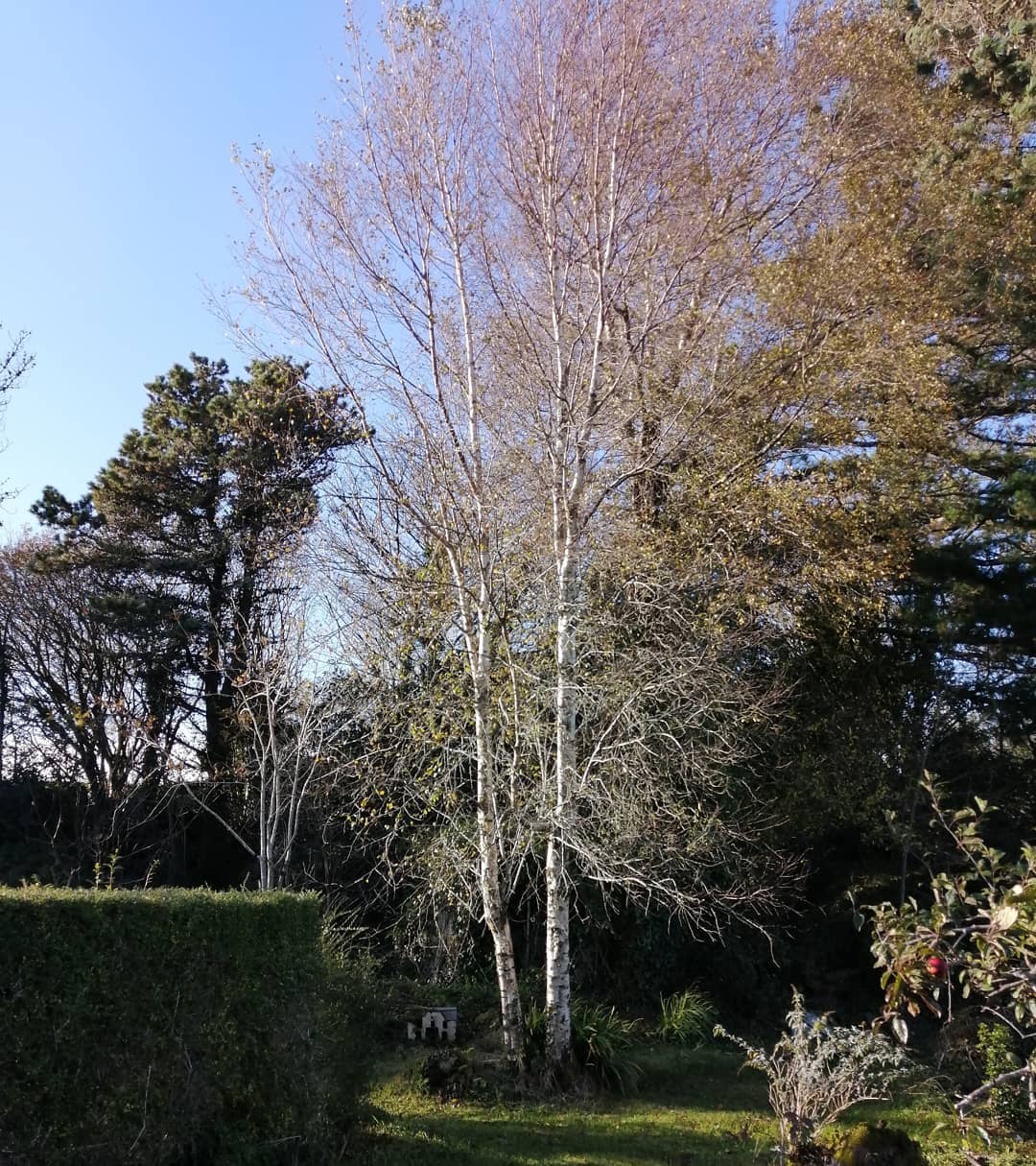The last day of October, Halloween, or ‘All Hallow’s Eve’ as it used to be called!
I personally don’t like dark and spooky stories, so to end the month of October, I’m going to share with you something bright and cheerful: a picture of the sun shining on the birch trees at the bottom of my garden. 😊
(Can you spot the last red apple of autumn still hanging on the tree?) 🍎
I love this time of year for its crisp sunlight and starkly beautiful nature. Many authors have cited autumn as their favourite season, and the renowned Scottish poet James Thomson (1700–1748) even composed an entire poem about it in the year 1730 as part of his cycle of poems titled ‘The Seasons’. 📚
‘The lengthened night elapsed, [and] the morning shines
Serene, in all her dewy beauty bright,
Unfolding fair the last autumnal day. …’
– James Thomson, ‘Autumn’, lines 1165-1167 (1730)
If you’re ever reading English poetry aloud and aren’t sure how to emphasise the punctuation correctly, just exhale fast at commas and inhale at periods – it’s that simple! Many students make the mistake of stopping at the end of each line, which can change the intonation and even the significance of some phrases.
The elegance of his writing is something I like, and he finishes certain phrases with adjectives or adverbs to emphasise their quality.
📜 ‘The lengthened night elapsed… the morning shines / Serene, in all her dewy beauty bright …’
Using this poetic turn of phrase occasionally in your written English will significantly increase its tone!
I will leave you to enjoy the rest of the day (and perhaps some poetry on the side too)!




